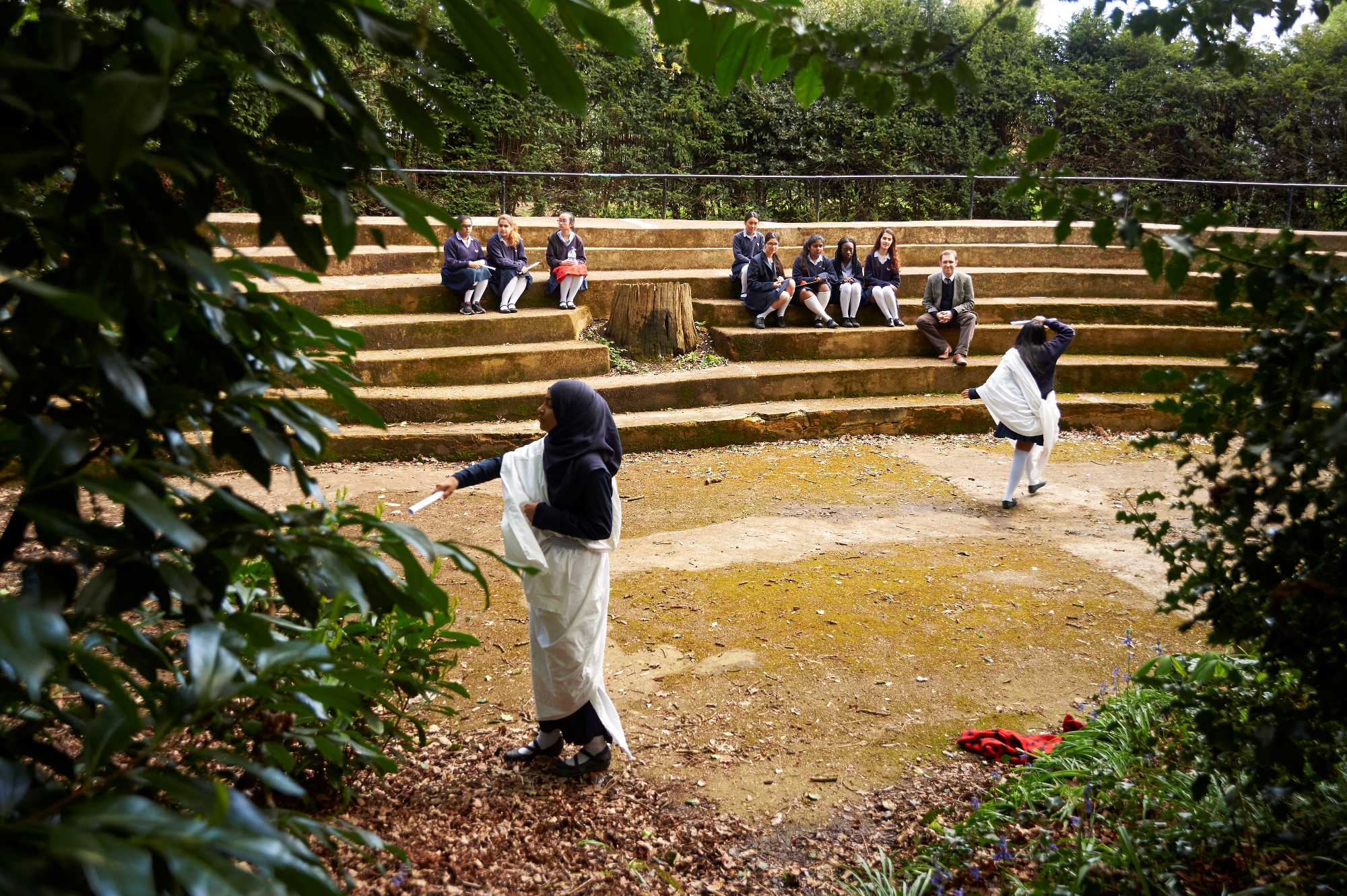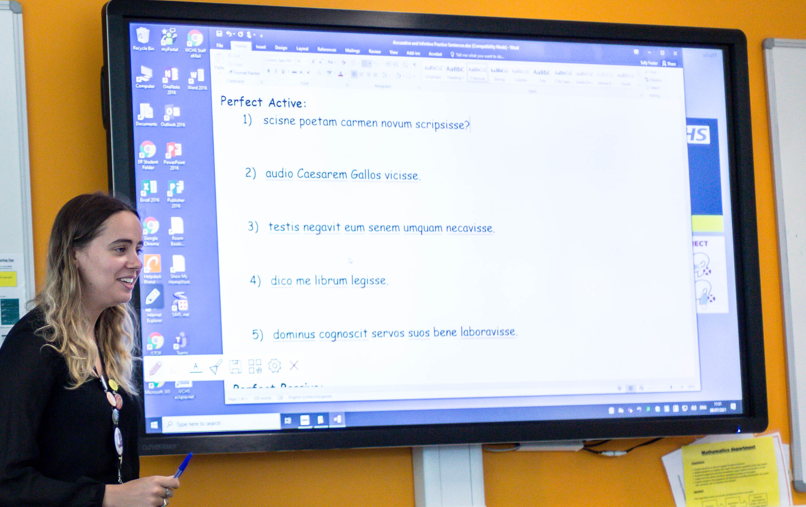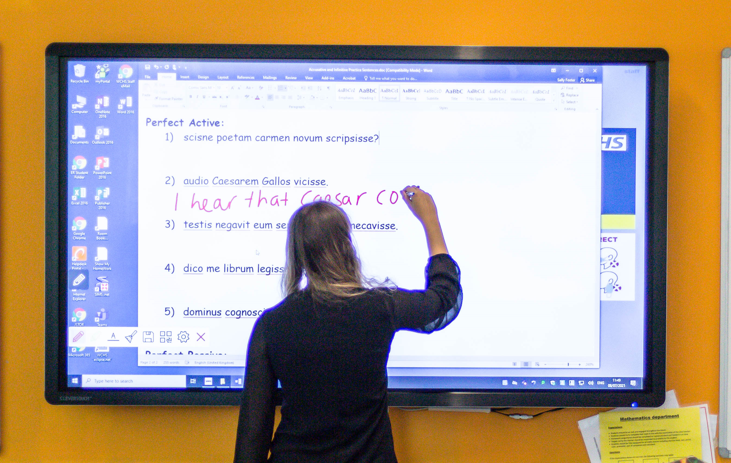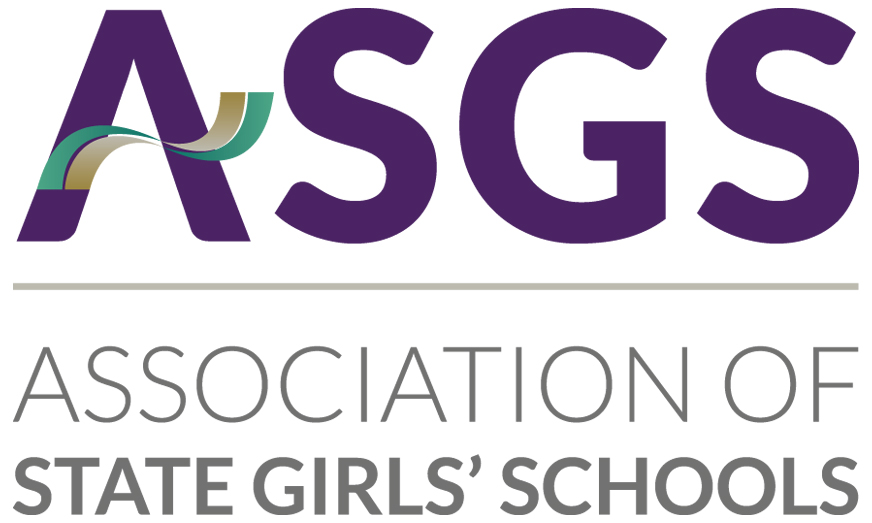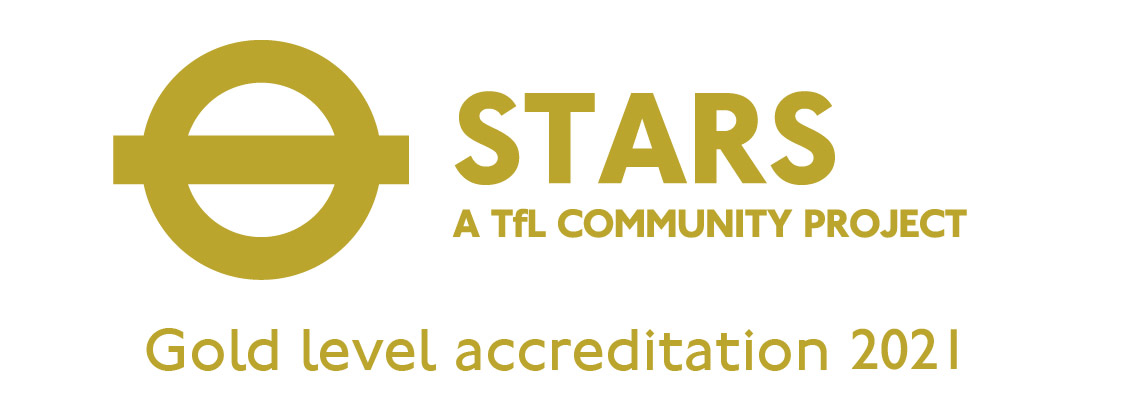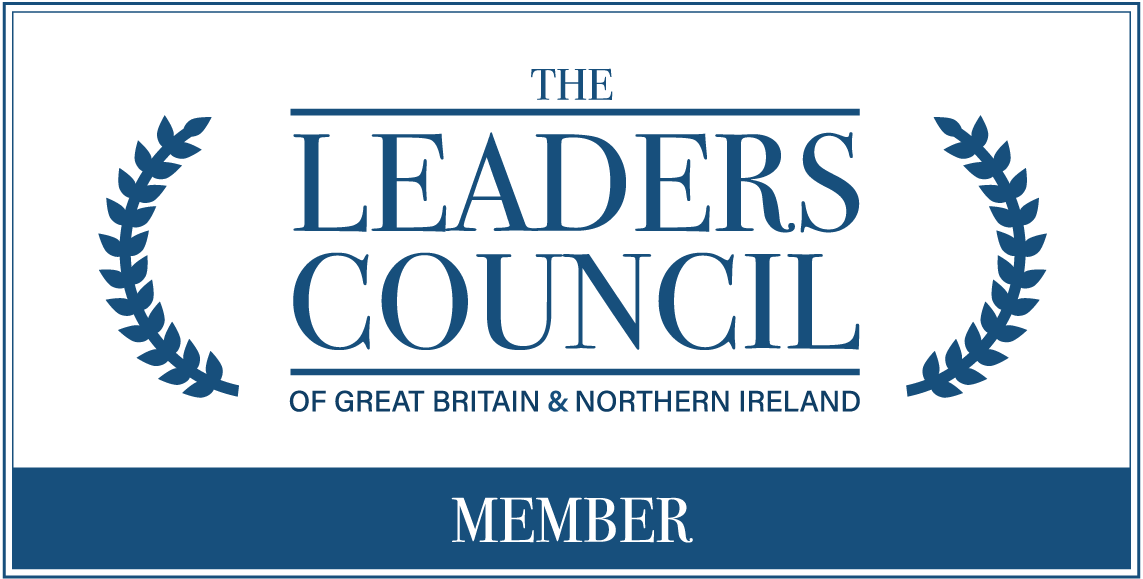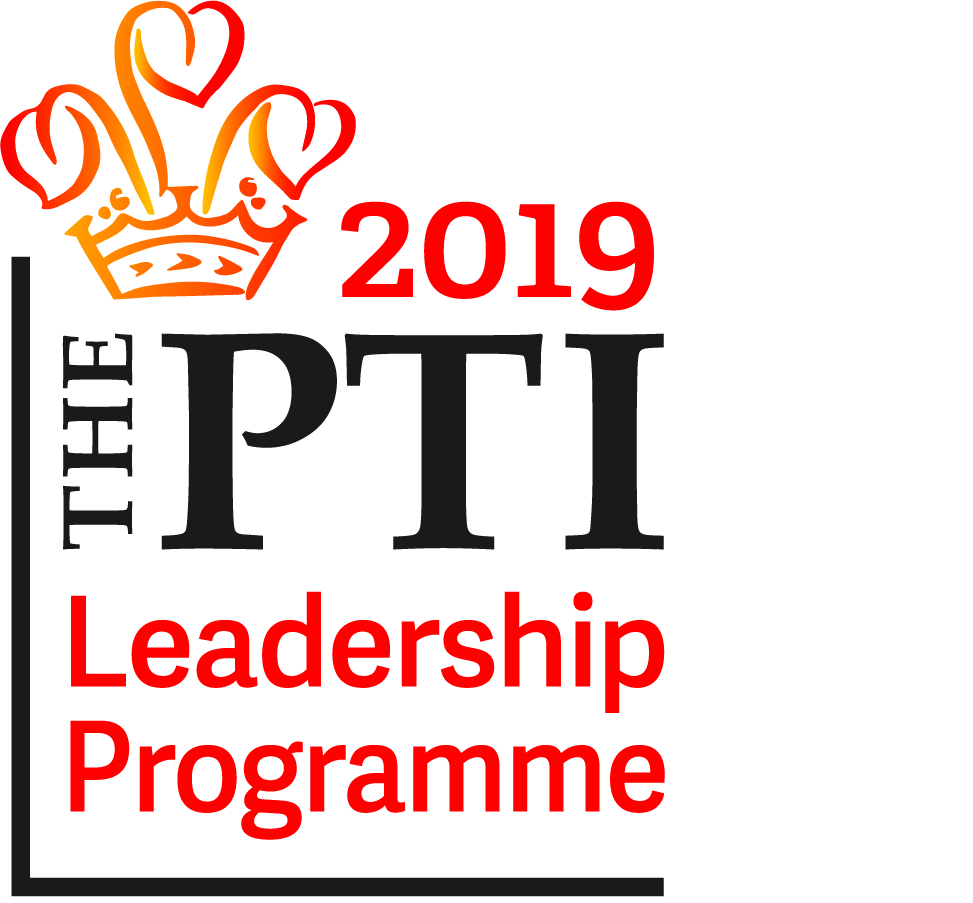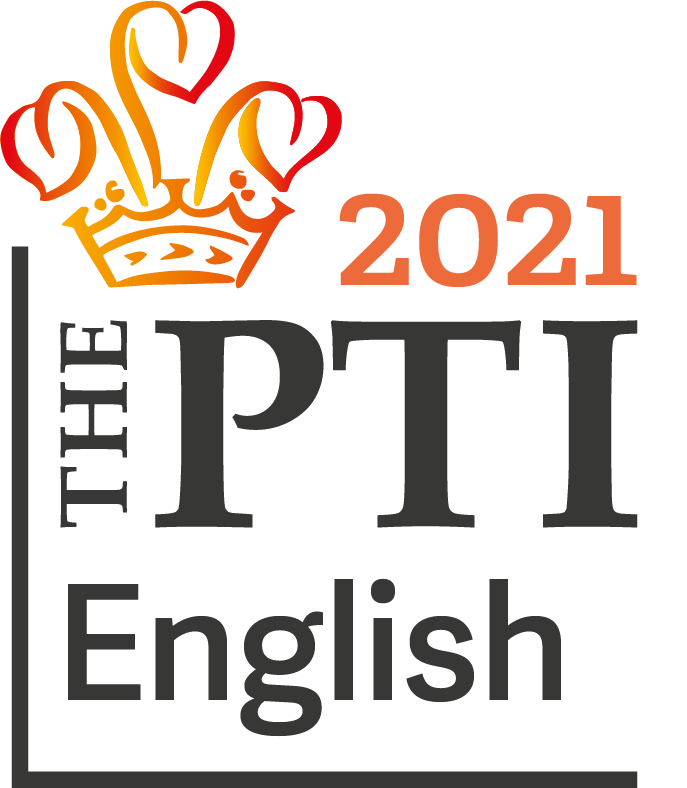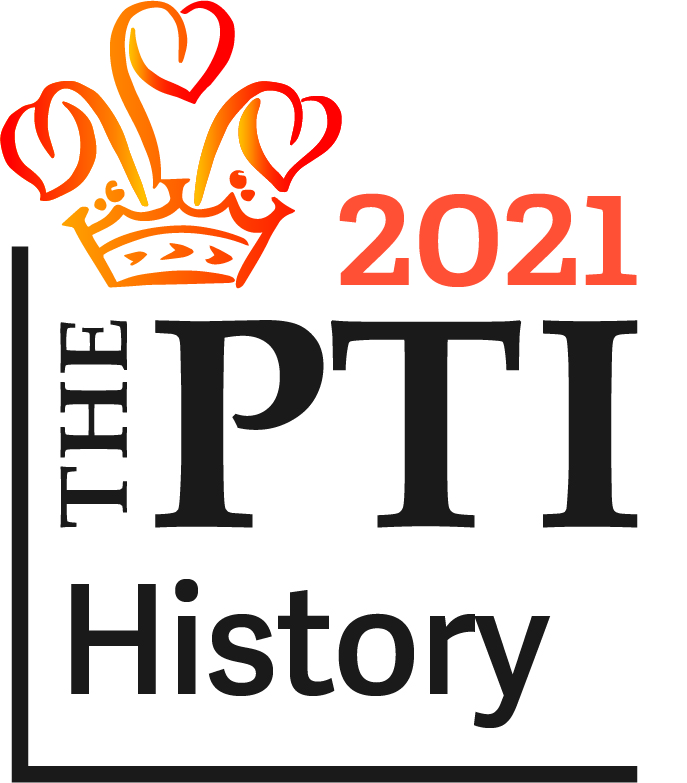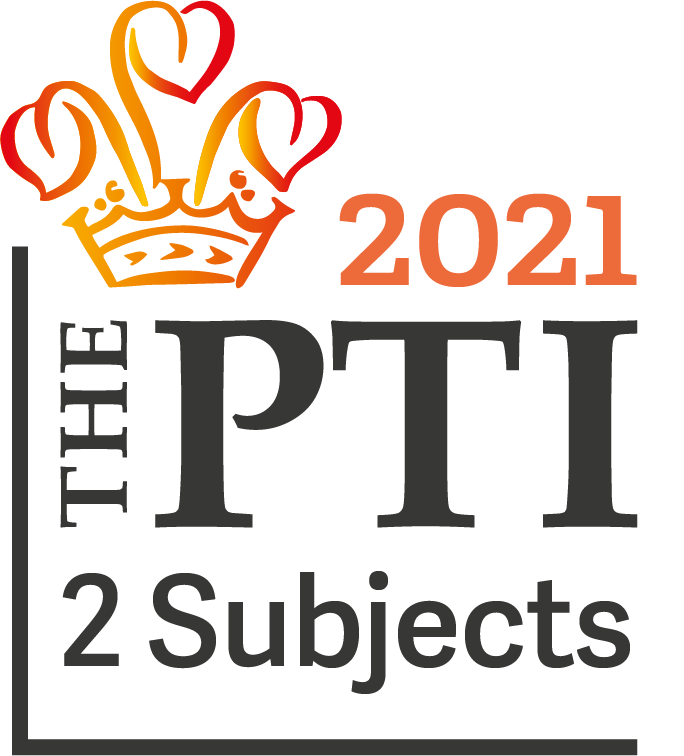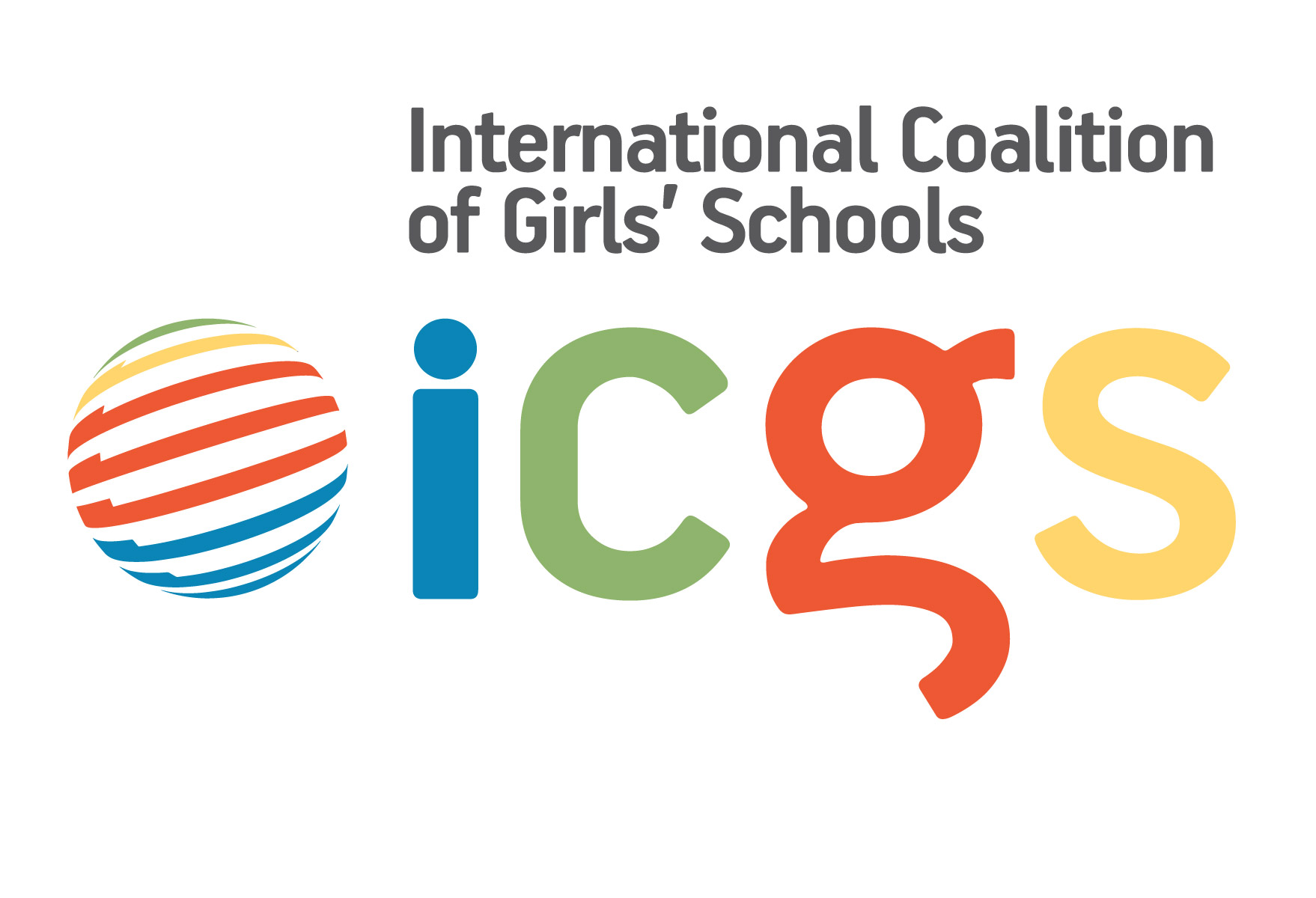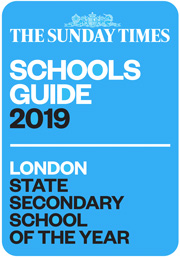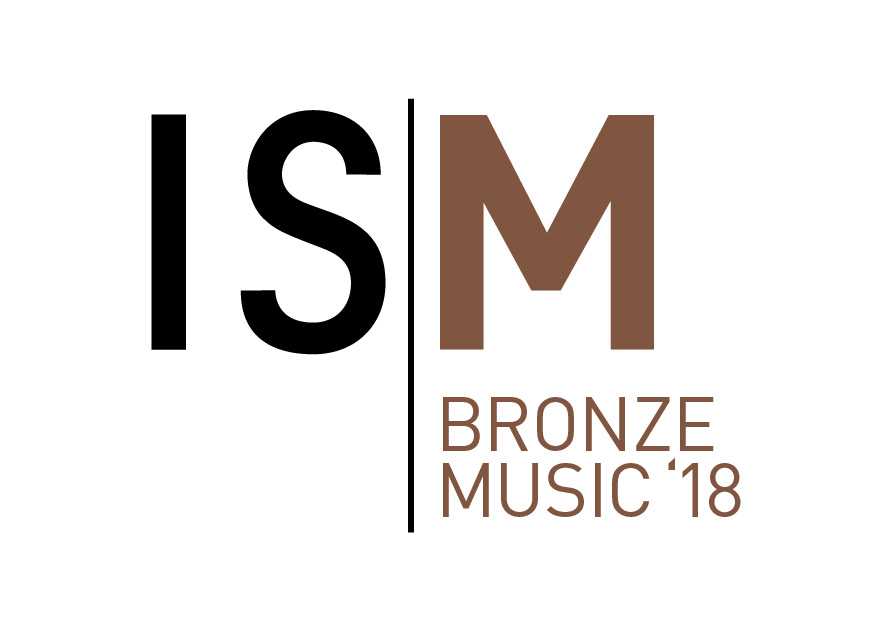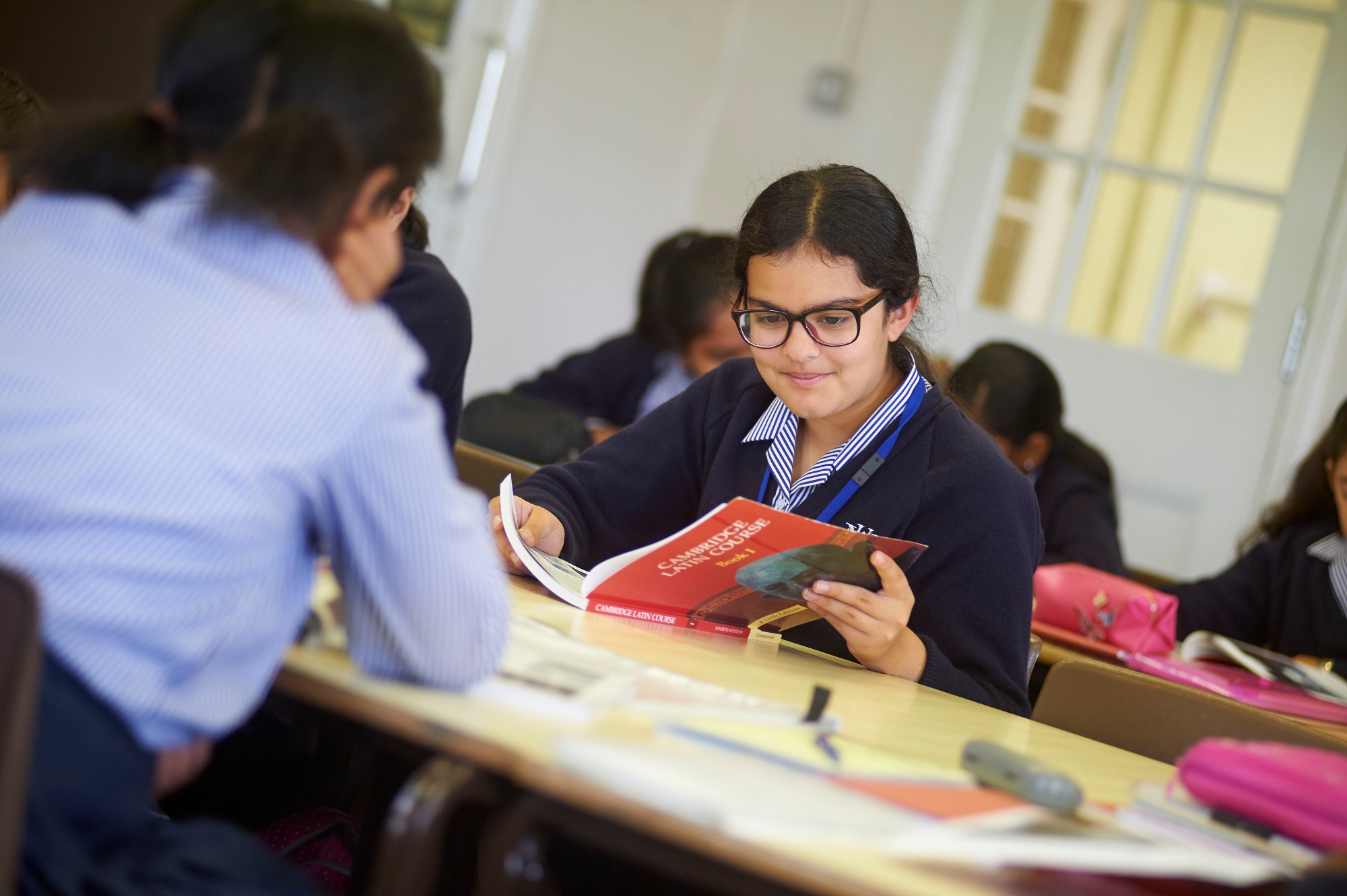
The Classics department at Woodford offers Latin from Year 7 and Classical Civilisation from year 10. Both subjects can be studied to A Level.
Why study Latin?
- It will provide you with grammar and vocabulary that closely resembles that found in modern foreign languages, making them much easier for you to learn
- It helps us better to understand extraordinary literature written by the ancient Romans that had such a profound influence on western society
- Studying the language helps improve your knowledge and understanding of complicated words in English which are derived from Latin
- It is an enjoyable and challenging inflected language that requires pupils to think logically and precisely
- It allows pupils to make comparisons between the ancient and modern world
KS3: Cambridge Latin Course
Pupils who choose Latin in Year 7 will study the Cambridge Latin Course Book 1, followed by Books 2 and 3 in Years 8 and 9. Studying the dramatic and engaging stories in Latin allows the pupils to develop their understanding and knowledge of the language whilst at the same time exploring areas of Roman culture and history. In Year 7 the pupils will study the town of Pompeii, how people lived their everyday lives and how the city was eventually destroyed by Mount Vesuvius. In Years 8 and 9 the context of the story is shifted to Roman Britain and ancient Alexandria. Our aim as a department is to bring the language to life through stimulating and engaging activities such as role play, which help consolidate the linguistic ideas in the passages and bring to life the cultural spirit of the ancient Romans.
KS4: GCSE Latin (OCR)
Pupils continue their study of the language, looking at more complex structures in the lead up to GCSE. In Year 10 they continue to use the Cambridge Latin course up to Book 4 which is set in ancient Rome. In Year 11 pupils have the opportunity to study poetry and prose written in the original language, analysing the ideas and style of the texts for eventual examination.
KS5: Latin (OCR)
At A Level the pupils will study works of literature of a more demanding standard by authors such as Cicero, Ovid, Virgil and Tacitus. A focus of study is how the language relates to the more complex ideas being relayed. By the end of the course pupils should be able to translate works by Ovid into fluent English. Pupils will study grammatical concepts, both those covered at GCSE and those new to them, in order to deepen their understanding of the mechanics of the language.
Classical Civilisation
Why study Classical Civilisation?
- Pupils study extraordinary literature written by Roman and Greek authors which have had a profound influence on the culture and values of modern western society
- Pupils get to relate what we have learned from the ancient world to a modern context
- Pupils develop many important transferrable skills, such as: the ability to research, collate and analyse materials; the ability to evaluate critically and to interpret resources in order to form impartial and coherent arguments
- Pupils appreciate the ancient world of the Romans and Greeks in more depth by developing a sensitivity to the cultural and moral contexts of the time.
GCSE Classical Civilisation (OCR)
This is a two-year course which focuses on the lifestyle and culture, as well as the literature of the ancient Romans and Greeks. In Year 10 pupils learn about women, both real and mythological, from ancient Athens, Sparta and Rome. They explore the identity and status of these women and how they were viewed according to the visual and literary sources of the time. In Year 11, pupils study the Odyssey by Homer with the focus on analysis and evaluation of the style, themes and characterisations found in the text. This is complimented by study of the Mycenaean civilisation through discussion of the wide range of sources found from this period, including death masks, jewellery, frescoes and remains of ancient cities. Teaching is mostly discussion based, but pupils are encouraged to bring their knowledge and understanding to life through creative homework assignments
A Level Classical Civilisation (OCR)
The pupils build on the knowledge gained at GCSE with study of more complex works of literature and sources exploring the values of the ancient Romans and Greeks. All three modules studied over the two years are literature based, including ancient epic poetry, Greek theatre as well as philosophy and poetry with the focus on the theme of love. We feel this not only provides continuity in the course, but also builds on the keys skills developed at GCSE. For example, studying Homer and Virgil in Years 12 and 13 respectively allows the pupils to see how the writing of epic became more affected by its political context than general moral values. As the course progresses we put a focus on improving pupils’ writing techniques and their approaches to analysis and evaluation of the main themes in the texts.
Enrichment activities at Woodford
Theatre Visits:
London’s proximity to the school has given us access to some of the very best performances of ancient literature. A modern production of ‘Medea’ and fresh reimaginings of the poems of Sappho at the Wilton's Music Hall have been amongst the highlights enjoyed by pupils studying Classical subjects in Years 10-13. These experiences help bring to life the texts the pupils have studied and also broaden their knowledge and appreciation of the Classical world through exposure to plays not on the syllabus.
Classics Play:
In recent years a drama teacher has helped oversee our biennial Classics Plays. In recent years there have been productions of ‘Ovid’s Tales’, ‘The Odyssey’, ‘Antigone’ and ‘Bacchae’ which have been performed before parents and students from other schools. Our most recent production was of Liz Lochead's modern rendering of Euripides' Medea, about which you can read an article below. Students from all year groups, and not necessarily studying classical subjects, have played a key part in making these successful. The Greek theatre has recently undergone a renovation and its leafy surroundings and authentic tiered seating make it a perfect location for reimagining and reworking classical texts.
Classics Play -Medea
After having studied the myth of Medea in GCSE Classics, I was compelled to audition for the play, Medea, when the opportunity arose. Right from the auditions, Jo (our wonderful director) challenged us to approach the audition scenes, regardless of whether they were of Medea, Jason or Kreon, using alternative interpretations. Having received the role of Jason, Jo sat down with Leena (Medea) and myself to discuss the internal and external portrayals of each of our characters. I despised Jason from what I had studied in Euripides’ play but Jo - being an amazing director - presented Jason’s character with such intricacy that I began to empathise with his actions towards Medea. Our rehearsals provided the perfect opportunity to utilise the beautiful Greek theatre at school though due to the rain, unfortunately, we were unable to present there. During rehearsals filled with much enthusiasm from all cast members, we not only created amazing memories and made new friends but we also improved our artistic vision in bringing Medea’s intriguing story to life. Near the performance date, Jo, Margaret (assistant director) and Mr. McClelland helped string the individual scenes into a captivating play. It was then, after seeing the rest of the cast in action, that I understood the vitality of the chorus and the effectiveness of the manservants in immersing the audience into Medea’s narrative. The final performance proved a result of everyone’s interpretations and hard work pieced together in an engaging show. It was a highly enjoyable experience: I would certainly recommend those who enjoy Classics or acting to participate in any similar opportunities that may arise.
Ashna 11B
Residential Visits abroad:
We aim to provide a visit to either Greece or Italy every year for pupils from Years 11-13. Such trips are very popular with the pupils, bringing to life the cultures and history they have studied in the classroom. A recent visit to the Bay of Naples allowed the students to visit the ancient cities of Pompeii and Herculaneum and climb to the top of Mount Vesuvius to peer into the volcano which destroyed both cities. These valuable experiences are backed up by visits to museums and information centres, such as our visit to the Museum of Naples, which gave us a glimpse of the ancient treasures found on the site of Pompeii.
Essay Competitions:
We encourage pupils in Year 12 to enter essay competitions so that they can show off and further their knowledge of the classical world. Selected pupils in Year 12 enter the Cambridge Fitzwilliam College and the Oxford St.John’s College Essay competitions, which covers different disciplines of Classics such as philosophy, history and lyric poetry. This serves as an excellent preparation for pupils intending to continue the subject at university. Indeed, one of our former Head Girls, Vidya Divakaran, won the Philosophy section of the St.John’s competition, and subsequently went on to study Classics at Cambridge University.
Intermediate Greek Certificate:
A limited number of students in Year 9 are given the opportunity to study John Taylor's 'Greek to GCSE Part 1' for two years, with the ultimate aim of them sitting the Greek Intermediate exam in the summer of Year 10. The after school Classical Greek Club takes place on Monday and is available to students studying Latin in Year 9.
Speech Days and Lectures:
In recent years, Year 12 and 13 pupils have attended webinars, lectures and talks on Classical topics at other schools and in London. The topics are usually directly relevant to the texts on exam syllabi such as a recent webinar organised by UEA entitled ‘What is Love?’ which related the Love and Relationships module studied by A Level Classical Civilisatioin students. We also organise museum visits for Years 10-13. Most recently a visit to the British Museum and Sir John Soane Museum was organised for all Year 13 students studying classical subjects.
Future Pathways
A Level Latin is an engaging and satisfying subject in its own right and is an invaluable support to degree courses in English, History and Modern Languages. It is well regarded by admission tutors for Medicine and Law, since the precision of approach, linguistic basis for technical terms and the humanitarian element add a useful breadth to any A levels specified for the course. Its analytical and broad approach to study has also been found to provide a sound basis for courses and careers in Finance and Management.
A Level Classical Civilisation is very well respected by universities and employers. It provides a valuable range of transferrable skills which can lead to careers in fields as diverse as law, accountancy, secondary and higher education, management, business, publishing, the media, archaeology, museum work, politics, tourism and the civil service.
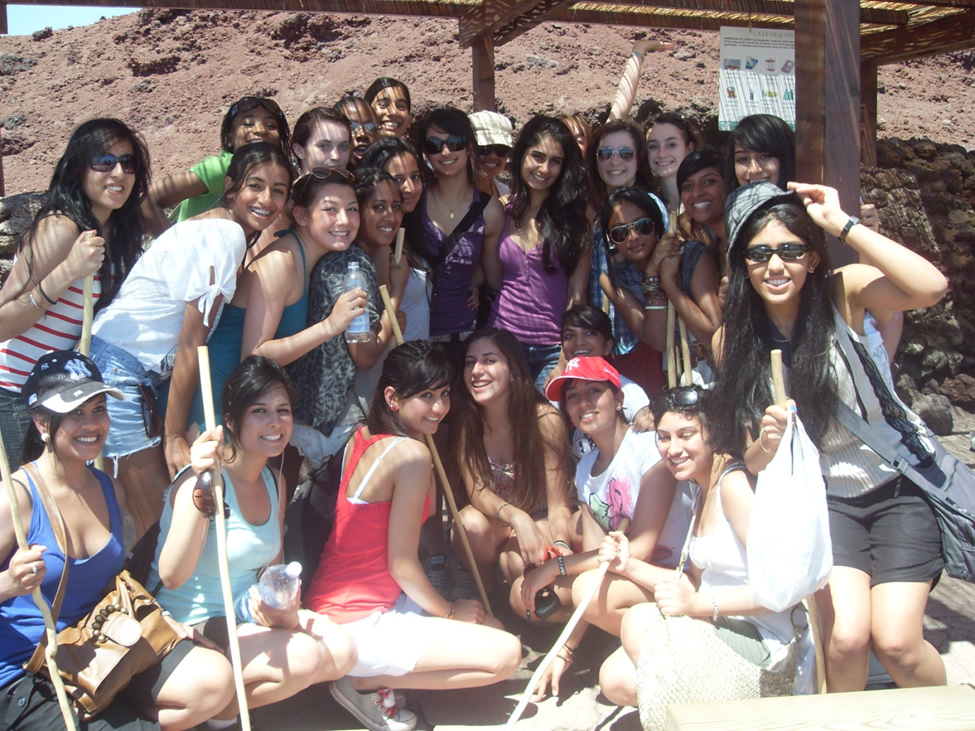
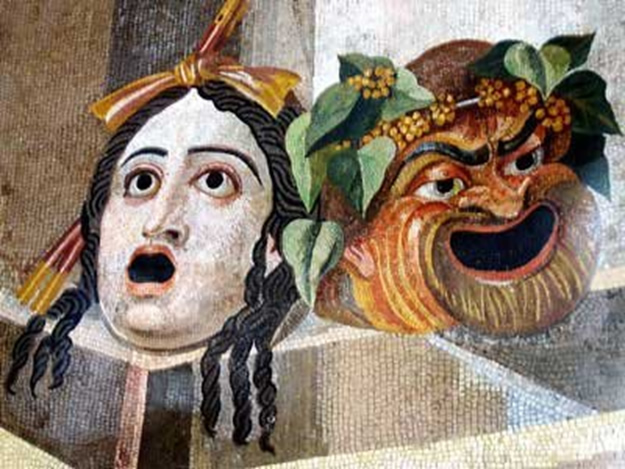
Recommended Reading
Recommended reading is contained within the Word document attached below.










